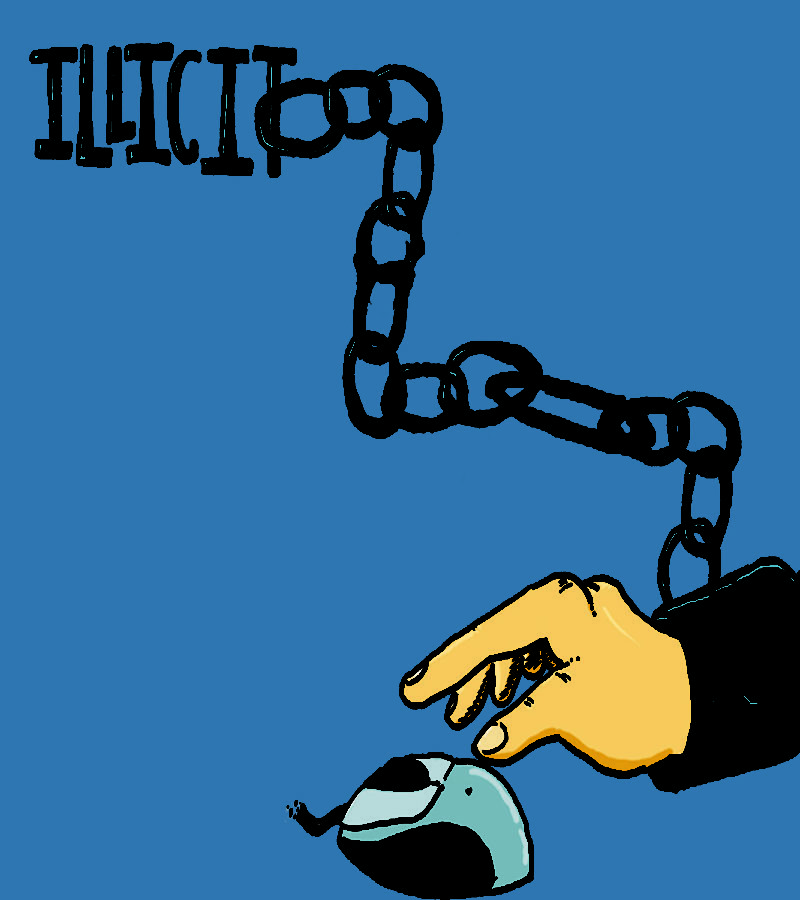Iowa State enforces consequences on illegal downloading
Illustration: Jordan Melcher/Iowa State Daily
Illegal Downloading
February 8, 2012
During the 2010-2011 school year, Iowa State reported the lowest number of complaints regarding illegal file sharing and uploading connecting with campus Internet.
With numerous resources to receive content from the music, television and movie industry, students have found numerous ways to easily access media content in an instant and free process.
However, faculty and students may or may not be aware that the downloading of their favorite song or movie could very well likely be an illegal act leading to further action affecting both the individual and the university.
Jeffrey Blevins, associate professor of journalism and communication, feels that students should be well aware the university monitors the network to see what employees and students are using in the personal, academic and research fields so the system can accurately distribute what students are accessing through the campus.
“The Internet is just not a public place,” Blevins said. “The university’s large Internet server allows students to have access but works to refrain them from certain types of activity.”
With a student’s first offense of illegally uploading or downloading someone else’s copyrighted work, the campus policy states that a student will be sent a warning email containing knowledge that they have violated the university’s policy and have no disciplinary action taken.
If the university is aware of illegal activity taking place within the campus network and fail to do nothing about the issue, action penalizing both the university and the individual could take place in regards to further handling the situation.
If a student is found to be committing multiple offenses, the privileges of the student’s access to Internet may be restricted with a starting period that usually begins at two weeks.
If a student is able to accurately identify and show they have not participated in illegal downloading or were unaware of the circumstances of their actions, Information Technology Services can often work with a student to figure out the outcome of their particular situation.
Thomas Hill, vice president of Student Affairs, believes faculty and students have a fair and equal chance to know their boundaries on what activity they are taking part in on their personal computers.
“When the rights are violated, I feel the university does a reasonable and consistent job educating students on how this behavior is inappropriate,” Hill said. “After we tell a student what they have done is wrong and they decide to persist, that’s a problem.”
Obtaining illegal content jeopardizes the success in recording and motion picture industries that have artists, actors, composers and other media related professionals relying on income from the work they have conducted.
Complaints may be made and acknowledged to the accused individual, but not all reports may be found to be illegal.
Sara Kellogg, program coordinator of the Dean of Students Office, has found that a majority of cases do not surpass the stage of sending a student the email identifying the illegal activity at hand.
“If a student is found responsible for their first misuse of the computer, it usually appears as a minor case,” Kellogg said. “We hardly ever see those second time charges happen.”
For more information discussing the policies of computer usage and file sharing resources at Iowa State, people are encouraged to visit the Iowa State Legal Filesharing Resources website to read content on the punishments and regulations concerning the campus.







